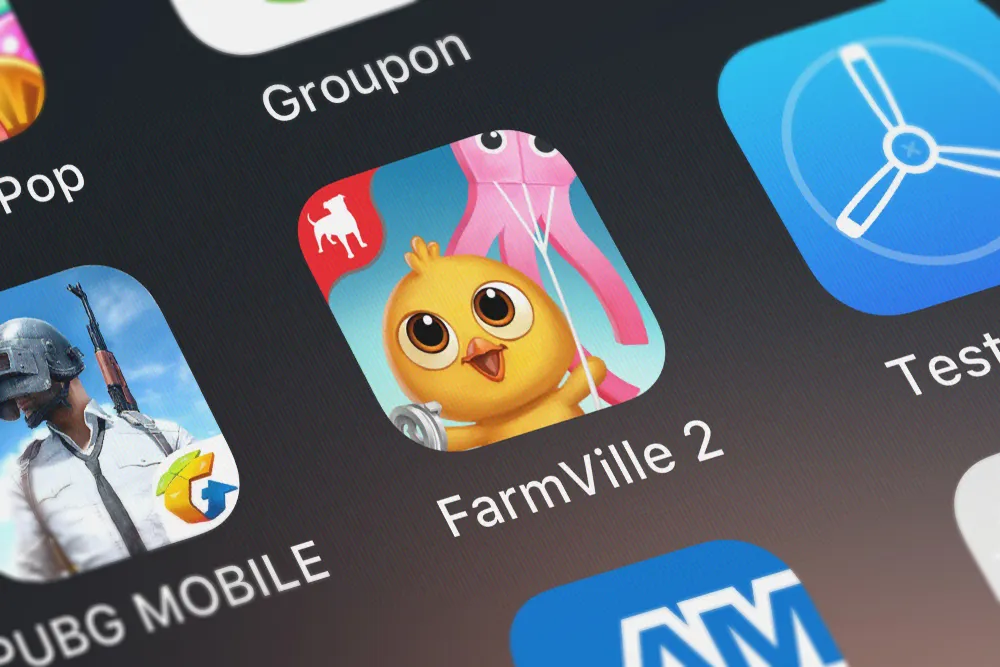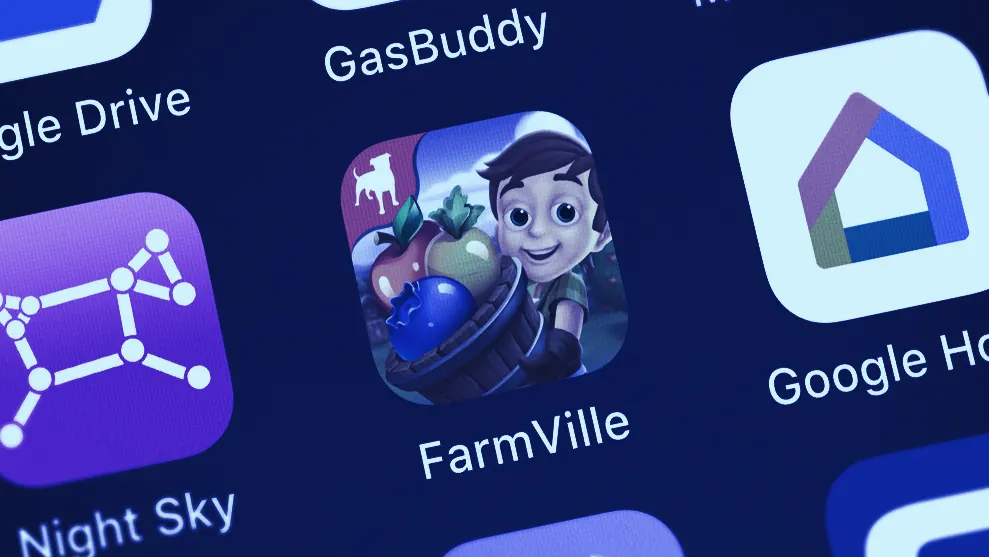In brief
- Farmville creator Eric Schiermeyer moves into the blockchain gaming industry.
- Schiermeyer plans to prioritize the game first, and blockchain second.
- Tokenized in-game assets may well prove to be a game-changer in blockchain adoption.
Gaming company Zynga is building a blockchain-based infrastructure, known as the Gala Network. It will enable developers to devise new games and allow players to possess their in-game content—taking items from one game to another.
Zynga has created a number of social media games successes, the most famous being FarmVille, which reached global hype on Facebook.
Eric Schiermeyer, co-founder of Zynga, is hoping the Gala Network will harness both the immutability of the blockchain and the utility of cryptocurrencies.
“It’s going to be a revolutionary experience for people,” Schiermeyer said, speaking to VentureBeat. “Unlike any other experience I’ve ever seen, when you spend money here, you actually get something, something that you can keep, and maybe even give away or give some to somebody else. You can’t do that in traditional free-to-play games right now.”
Blockchain Game Partners—the company behind Schiermeyer’s grand plan—also teamed up with Mike McCarthy, the creative director on FarmVille 2. McCarthy is currently working on a blockchain game known as Townstar, which will be built on the Gala Network. It radiates many of the properties Schiermeyer intends to introduce in his own line-up.

Townstar permits players to truly own the items they purchase or produce, facilitating secure buying, selling, and trading via a peer-to-peer marketplace.
These in-game items embody a true level of scarcity because they’re digitally unique. They are similar to Cryptokitties, an Ethereum-based game that went viral in late-2017.
Monetising the gaming world
With digital uniqueness imbued into the token, players are able to sell their items for real-world cash.
“Just like networked games and social games I believe that blockchain games are the next evolution in gaming,” Schiermeyer opines. “Pretty soon, nobody will play a game that is a black hole of time and money, if they have good alternatives that allow the player to retain ownership of their time and money.”
Thanks to this ability to tokenize in-game items and provide genuine value to players, gaming is cited as one of the tipping points for blockchain mass adoption.
However, Schiermeyer doesn’t just want to levy the popularity of blockchain gaming. Instead, he intends to build games that stand on their own merits.
“We want to be first with a real mass-market game that is a game first and blockchain a distant second.”

